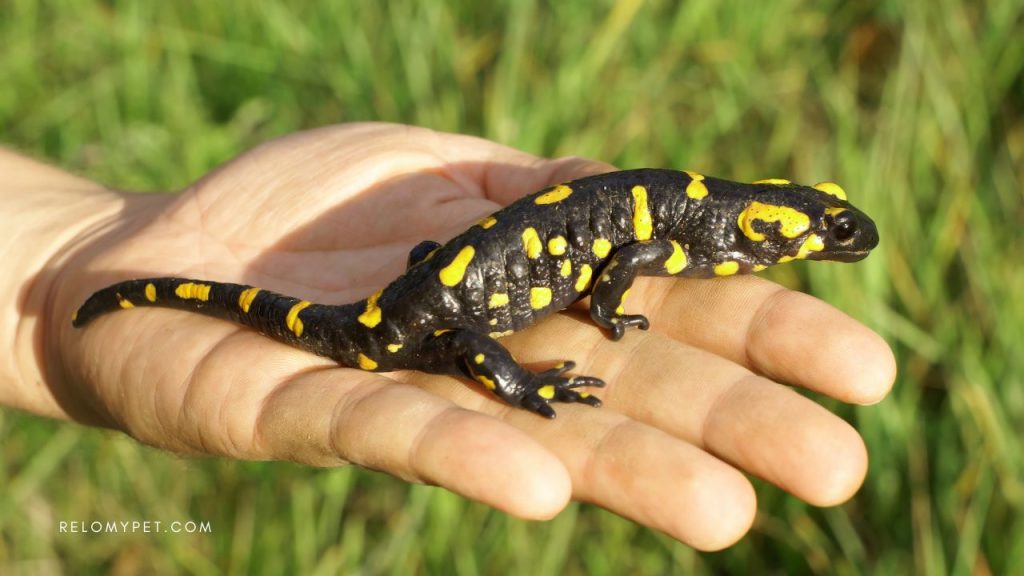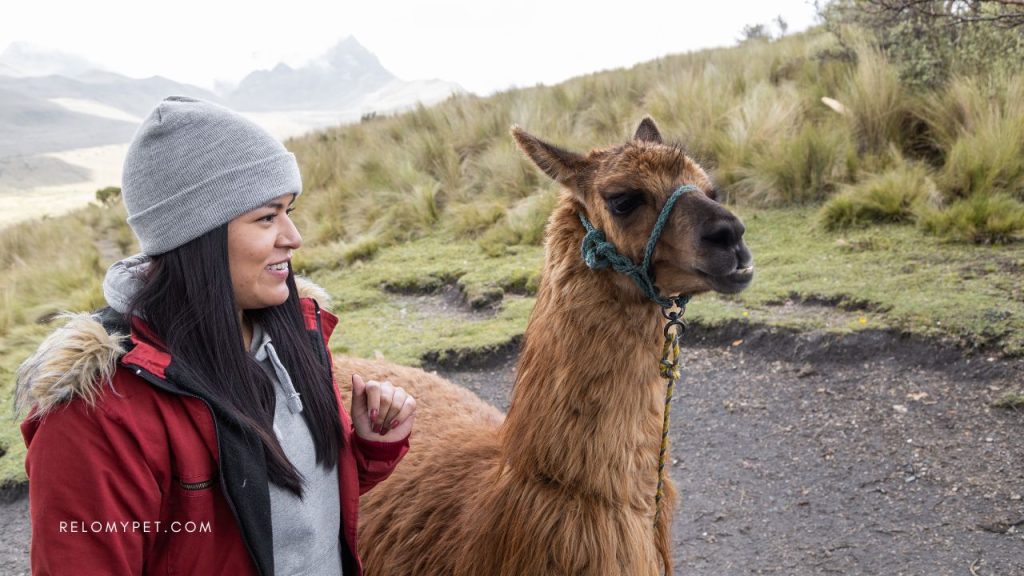Navigating New Zealand's Pet Landscape
Table of Contents
Navigating New Zealand's Pet Landscape: What's Legal, What's Not
Updated: 2025

New Zealand is a beautiful and biodiverse country with strict regulations around legal and illegal pets in New Zealand to protect its unique ecosystem. Whether you’re considering relocating with your pet or simply curious about what animals you can legally own, it’s crucial to understand what is allowed under the country’s biosecurity and environmental protection laws.
Legal Pets: Domesticated Delights
Common pets, such as domestic dogs, cats, rabbits, and horses, are legal and widely loved in New Zealand. However, all animals are subject to import rules and quarantine requirements when brought from abroad. The Hazardous Substances and New Organisms (HSNO) Act ensures New Zealand’s biodiversity is preserved by regulating all species not present before July 1, 1997.
Approved Pet List: What's Allowed?
As of 2025, the Ministry for Primary Industries (MPI) only allows importation of the following pets (outside of cats and dogs) and only from approved countries:
- Chinchillas – from Great Britain
- Rabbits – from Australia
- Guinea pigs – from Australia
Many pets commonly found elsewhere are not permitted to be imported, including birds and reptiles, due to the risk they pose to New Zealand’s flora and fauna.
Important Update on Rodents
Hamsters and gerbils are not allowed in New Zealand:
- Hamsters are classified as prohibited organisms under the Biosecurity Act 1993.
- Gerbils, although not specifically listed, are not permitted for import, breeding, or ownership.
MPI explicitly restricts the import of:
- Ferrets
- Mice and rats (except lab animals)
- Guinea pigs (except from Australia)
- Snakes and most reptiles (only a few species are allowed in zoos)
For more details, check MPI’s official site: Bringing Pets to NZ (other than cats and dogs)

Exotic Pets: Facts and Restrictions
Pets not naturally found in New Zealand are considered exotic and are heavily regulated under the HSNO Act. This includes animals such as sloths, foxes, and numerous reptiles and birds. These animals cannot be imported or owned privately, except by zoos or approved containment facilities.
Allowed exotic pets (with proper care and depending on species):
- Axolotls (Mexican salamanders)
- Certain turtles and tortoises (e.g., red-eared slider, Reeve’s turtle)
- Bearded dragons
- Leopard geckos, skinks, and newts
- Freshwater ornamental fish
Note: Exotic birds, reptiles, and amphibians often require permits or are restricted to zoo ownership only.

Banned Breeds and Dangerous Animals
Certain dog breeds are banned under the Dog Control Act:
- Brazilian Fila
- Dogo Argentino
- Japanese Tosa
- Perro de Presa Canario
- American Pit Bull Terrier
Only service or assistance dogs from these breeds may qualify for exceptions under strict conditions.

Hybrids and Rare Cases
Hybrids such as wolf-dogs and wildcat crosses are generally prohibited. However, Bengal cats are allowed only if they are proven to be five generations removed from a wild ancestor.
Forbidden Pets
New Zealand bans many animals that are commonly kept as exotic pets in other countries:
- Lions, tigers, bears
- Snakes
- Ferrets, stoats, polecats
- African rodents, capybara, squirrels, and hedgehogs
- Possums and opossums
- Most parrots, exotic birds, and corvids
Native species like kiwis, kakapo, or tuatara cannot be owned under any circumstances.
Attempting to bring in prohibited pets can result in fines, imprisonment, and euthanasia of the animal.

A Challenge of Pet Relocation to New Zealand
Moving pets to New Zealand requires meeting rigorous criteria to ensure biosecurity:
- You must hold all necessary import permits, veterinary documents, and vaccination proof.
- Pets often undergo quarantine upon arrival.
- Only pets from approved countries can be imported.
Learn more in our detailed guide: Pet Relocation to New Zealand.

A Final Note
New Zealand takes its biodiversity seriously – and rightfully so. Before planning any move or pet adoption, check MPI guidelines and consult with professional pet relocation services to avoid heartbreak.
Frequently Asked Questions (FAQ) on Legal and Illegal Pets in New Zealand
Yes, but only certain species are allowed into New Zealand. Dogs, cats, chinchillas (UK), rabbits (AU), and guinea pigs (AU) may be eligible under MPI rules.
It varies depending on your pet’s size, destination, documentation, and quarantine needs. You can request a custom quote here: 👉 Relopet Estimate Form.
Pet relocation to New Zealand can be complex due to biosecurity laws, documentation, and breed restrictions. Expert assistance is recommended.
This varies by airline, route, and pet type. Fees may range from a few hundred to several thousand dollars. Use our estimation tool to learn more.
Still have questions? Our team at Relopet International is here to help ensure your pet’s move is safe, legal, and stress-free.
Contact Relopet International
Explore the diverse world of New Zealand’s pets with Relopet International.
Relopet International simplifies the process of shipping pets worldwide, aligning with Air Canada’s regulations for a secure and comfortable journey. We understand the importance of your pet’s safety and comfort, and our expertise ensures a smooth travel experience for both you and your furry companion. Contact us today to learn more about our services.


Why aren’t hamsters allowed i nz?
because other rodents like rats and mice went crazy destroying the ecosystem already, so they arent allowing any new species of any sort into the country without contained research first, particularly not a new species of rodent.
If you are a millionaire who can fund a multiyear offshore island study on how hampsters could be used as a cheap kebab meat, the government would consider your proposal. And then probably say no regardless. We have plenty of chicken and beef kebabs already.
Hi! Great question.
New Zealand has a no-rodent policy and aims to completely eradicate rats and other nuisance animals by 2050. It is a cornerstone of its biosecurity approach. A single escaped pair of hamsters could multiply rapidly and spread into native habitats, much like the established feral mouse and rat populations that have had dramatic environmental impacts.
what about fish?
Good news! Many ornamental fish are permitted in New Zealand without special licensing, as long as they are not invasive or “noxious” species.
– Goldfish, guppies, bettas, and similar common aquarium species are allowed to be kept freely.
– Koi carp, rudd, catfish, and gambusia require formal approval from agencies like DOC, MPI, or Fish & Game; and stricter rules apply depending on your region.
So yes, fishkeeping is widely permitted, with regulations tailored to ecological risk.
Hi, is there any unlisted pets here that are allowed to be owned with a particular license?
Absolutely! Several species aren’t broadly advertised but can be legally owned under strict permit systems:
– Native reptiles like Naultinus geckos can be kept under DOC-issued permits – typically an “A permit” for newcomers or a “B permit” for more advanced keepers.
– Freshwater species such as koi carp, rudd, gambusia, and catfish may require approval from MPI, DOC, or Fish & Game depending on the species and region.
– Some exotic amphibians, reptiles, and invertebrates are permitted under MPI/DOC exemptions, provided they were established in NZ before 1997 and aren’t endangered.
It’s a bit of a niche area, but for the dedicated hobbyist, there are legal pathways for less-common pets – always through appropriate permits and in full compliance with conservation and biosecurity laws.
are fisher cats legal in new zealand?
Short answer: No, they are not legal.
Fisher cats (more accurately, fishers – Pekania pennanti) are North American mustelids, not feline at all. NZ’s biosecurity rules categorically ban the import and ownership of non-native mustelids except domestic ferrets, and even ferrets are tightly controlled.
Since fishers are not ferrets and are not listed among those allowed under special licensing, they fall under the blanket prohibition on “other restricted pets” – illegal to import, own, or breed in New Zealand.
“ferrets are tightly controlled”. Where did you get that? Ferrets are 100% banned, just like gerbils, hamsters, stoats and polecats last time I checked…. Can you please source the claim of them being allowed under “special licence”? Or are you talking about zoo animals (in which case I don’t know why you are answering in this way as I thought this article was targeting basic civilians/normal domestic family pet owners, not industry-related breeders or institutions…..??
Thank you for your thoughtful comment and for pushing us to be as precise as possible.
You’re absolutely right – ferrets are fully banned as pets in New Zealand. Our previous reference to a “special license” lacked clarity, and we appreciate the opportunity to correct it.
Here’s what the law actually says:
– Ferrets are classified as “unwanted organisms” under the Biosecurity Act 1993.
– This means they cannot be imported, bred, sold, or kept as pets in New Zealand.
– The only exception applies to approved organizations (e.g. zoos or research institutions) – they must apply to MPI for strictly controlled containment permissions, and these are only considered if there is a clear biosecurity benefit (MPI source).
You can also read more about this classification and the reasoning behind it on the website of Department of Conservation.
Where do I go to find out wha species of bird are options as pets in NZ a lot of lists just say what is common :3
Hi there! Great question 😊
You’re right, most lists focus on what’s common, not what’s possible. For a more complete and official source, we recommend checking with:
MPI (Ministry for Primary Industries) – for guidelines on what bird species are allowed and how to import them.
DOC (Department of Conservation) – for native species and any special permits you might need.
Avian clubs and bird breeders in NZ – they often have hands-on knowledge of rarer but still legal pet birds.
how do people even get the exotic pets?
Great question, and a complicated one! In most cases, exotic pets in New Zealand are only legally kept if they were brought into the country before stricter laws came into effect (especially before 1997) or if they’re part of an approved breeding program with government oversight.
New Zealand takes biosecurity very seriously, so unauthorized possession of an exotic pet can result in confiscation, heavy fines, or even prison time. It’s simply not worth the risk.
Most legal exotic pets in NZ were here before the rules tightened or are owned under strict licensing. If you’re dreaming of a unique companion, we recommend exploring legal exotics like permitted fish, birds, or reptiles.
why not seals
Great question! Seals, New Zealand fur seals (kekeno), and sea lions (pakake) are strictly protected wildlife, not pets. Under the Marine Mammals Protection Act 1978, it’s illegal to harass, feed, touch, or keep them as pets.
So while they’re amazing to watch from a safe distance on NZ shores, seals are off-limits as pets – both ethically and legally.
what if they are not those kind of seals
That’s a creative question, Liam! 😄 If you’re referring to a different kind of “seal” (and not the flippered, fish-loving marine mammals), we may need a bit more context before we can give you a proper answer – but we’re all ears! 🦭💬
No one anywhere in the world can legally have a pet seal, mate, why do you think NZ would allow it??
I don’t know why they have listed hamsters and gerbils as possible pets when they are actually legally banned here. No rodents beyond the domesticated rats (so-called “fancy rats”, aka Rattus norvegicus, NOT Rattus rattus as this is a pest), domesticated mice (fancy mice, Mus musculus) and guinea pigs (Cavia porcellus) are allowed; things like african or other species of rats, capybara, foxes of all kinds, wolves, ferrets, stoats, gerbils, hamsters, hares (rabbits are ok but iirc you need a licence to show it’s a domesticated rabbit as they are pests here) all snakes, and most reptiles apart from certain lizards, frogs and a few turtles and tortoises are not allowed (and I believe you have to get a reptile licence, according to my friend with a bearded dragon).
I’m not au fait with what birds and fish are allowed, but there is a fair range iirc, only it cannot be any kind of endangered or exotic or large bird (you must have a breeding licence for things like turkeys, but partridges, pidgeons, cockatoos and some parrots are ok, along with several others). Corvids are banned, along with anything that would wreck havoc on the native wildlife of the country.
If you try and bring in exotic pets, depending on what it is you will either receive a VERY large fine or prison time; imprisonable smuggled animals include most large and/or undomesticated wild animals (big cats, reindeer, flamingos, african or amazonian birds), snakes, unauthorised rodents, stoats/ferrets/polecats, possums/opussums (the former being introduced is bad enough). Also releasing something like a goldfish, insect, mammal, reptile or anything else known to be destructive to the native flora and fauna (be it knowingly or unknowingly) can also result in serious prison time and/or deportment, along with the animal usually being sadly euthanaised.
Please, PLEASE update the “approved pet list” to remove gerbils and hamsters as you are giving inaccurate information and it may be distressing to people who think they might be able to bring their beloved pet, only to discover they cannot. You guys clearly know about this too, based on comment replies, so I have no idea why it hasn’t been updated in the article text.
Thank you so much for your detailed and thoughtful comment. You’re absolutely right – New Zealand has some of the world’s strictest biosecurity laws to protect its unique flora and fauna, and animals like hamsters and gerbils are not permitted as pets here.
This blog post was originally published in 2023, and thanks to your feedback, we’ve since updated the content to reflect the most current guidance from the Ministry for Primary Industries (MPI).
We truly appreciate you pointing this out and helping us keep our readers well-informed. If anyone is planning a relocation and is unsure whether their pet qualifies for entry, they can always reach out to our team or consult MPI directly for clarification.